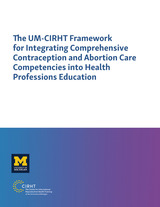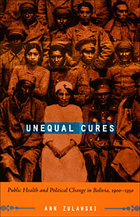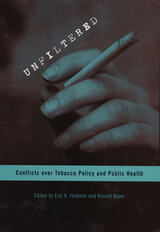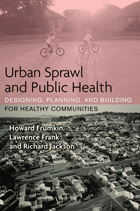4 start with U start with U

The framework is intended to provide guidance on how the programmatic and operational strategies for family planning and comprehensive abortion care could be extended in countries or institutions that seek to replicate the UM-CIRHT model in their settings. It may be adapted to the local context of individual countries and institutions.
This framework document is produced by UM-CIRHT with funding from an anonymous donor.

Drawing on hospital and cemetery records, censuses, diagnoses, newspaper accounts, and interviews, Zulawski describes the major medical problems that Bolivia faced during the first half of the twentieth century, their social and economic causes, and efforts at their amelioration. Her analysis encompasses the Rockefeller Foundation’s campaign against yellow fever, the almost total collapse of Bolivia’s health care system during the disastrous Chaco War with Paraguay (1932–35), an assessment of women’s health in light of their socioeconomic realities, and a look at Manicomio Pacheco, the national mental hospital.

Tobacco, among the most popular consumer products of the twentieth century, is under attack. Once a behavior that knew no social bounds, cigarette smoking has been transformed into an activity that reflects sharp differences in social status.
Unfiltered tells the story of how anti-smoking advocates, public health professionals, bureaucrats, and tobacco corporations have clashed over smoking regulation. The nations discussed in this book--Australia, Canada, Denmark, France, Germany, Japan, the United Kingdom, and the United States--restrict tobacco advertising, tax tobacco products, and limit where smoking is permitted. Each is also struggling to shape a tobacco policy that ensures corporate accountability, protects individual liberty, and asserts the state's public health power.
Unfiltered offers a comparative perspective on legal, political, and social conflicts over tobacco control. The book makes a unique contribution to our understanding of how scientific evidence, global health advocacy, individual risk assessments, and governmental interests intersect in the crafting of tobacco policy. It features national case studies and cross-cultural essays by experts in health policy, law, political science, history, and sociology. The lessons in Unfiltered are crucial to all who seek to understand and influence tobacco policy and reduce tobacco-related mortality worldwide.

In Urban Sprawl and Public Health, Howard Frumkin, Lawrence Frank, and Richard Jackson, three of the nation's leading public health and urban planning experts explore an intriguing question: How does the physical environment in which we live affect our health? For decades, growth and development in our communities has been of the low-density, automobile-dependent type known as sprawl. The authors examine the direct and indirect impacts of sprawl on human health and well-being, and discuss the prospects for improving public health through alternative approaches to design, land use, and transportation.
Urban Sprawl and Public Health offers a comprehensive look at the interface of urban planning, architecture, transportation, community design, and public health. It summarizes the evidence linking adverse health outcomes with sprawling development, and outlines the complex challenges of developing policy that promotes and protects public health. Anyone concerned with issues of public health, urban planning, transportation, architecture, or the environment will want to read Urban Sprawl and Public Health.
READERS
Browse our collection.
PUBLISHERS
See BiblioVault's publisher services.
STUDENT SERVICES
Files for college accessibility offices.
UChicago Accessibility Resources
home | accessibility | search | about | contact us
BiblioVault ® 2001 - 2024
The University of Chicago Press









